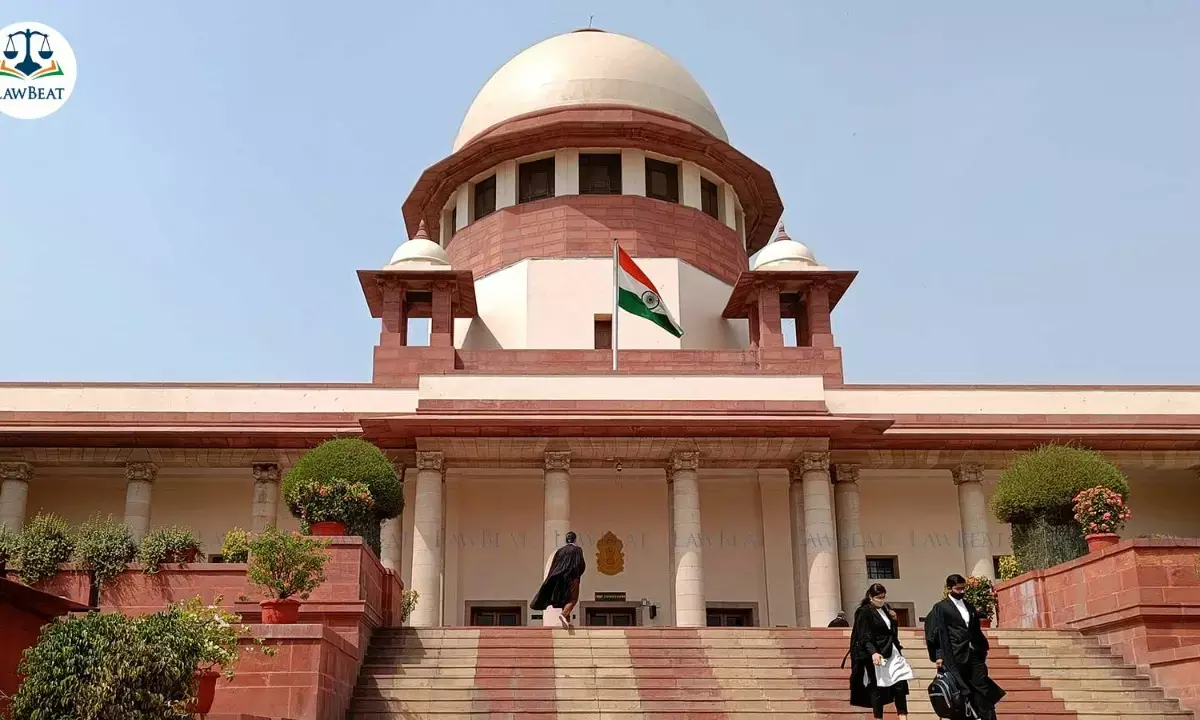Can Criminal Courts Review Their Own Judgments? Supreme Court Says No, With Limited Exceptions

The Supreme Court has held that criminal courts are barred from altering or reviewing their own judgments except for narrowly defined statutory exceptions. The Court emphasized that this prohibition under Section 362 of the Code of Criminal Procedure (CrPC) remains absolute, notwithstanding the inherent powers under Section 482 of the Code.
A bench of Chief Justice B.R. Gavai and Justice Augustine George Masih observed that once a criminal court has signed its judgment or final order, it becomes functus officio, leaving no scope to revisit the matter except for correction of clerical or arithmetical errors or when explicitly provided under law.
“It is only in situations wherein an application for recall of an order or judgment seeking a ‘procedural review’ that the bar would not apply, and not a substantive review where the bar contained in Section 362 CrPC is attracted,” the bench clarified.
The Court enumerated five exceptional circumstances where recall or review may be permissible:
(a) express statutory provision conferring such power;
(b) inherent lack of jurisdiction in passing the judgment;
(c) fraud or collusion practiced upon the court;
(d) mistake by the court causing prejudice to a party; or
(e) non-service of a necessary party or death resulting in non-representation of an estate.
The Court reiterated that such grounds must not have been available during the original proceedings. Parties cannot seek to reopen concluded matters by asserting grounds that were deliberately omitted earlier.
“The said power cannot be invoked as a means to circumvent the finality of the judicial process or to rectify mistakes attributable to conscious omission by parties,” it held.
The observations came while allowing an appeal filed by Vikram Bakshi and others challenging a May 5, 2021 order of the Delhi High Court. The High Court had recalled its earlier judgment dated August 13, 2020, which had disposed of Criminal Miscellaneous (Co.) No. 4 of 2019 filed under Section 340 CrPC for prosecution on allegations of perjury.
In recalling its earlier judgment, the High Court acted on an application filed under Order XLVII of the Code of Civil Procedure, 1908, on the ground that the Company Petition (CP 114 of 2007) pending before the Company Law Board (now NCLT) had been withdrawn prior to the 2020 judgment.
The top court held the review application itself to be not maintainable as proceedings initiated under Section 340 CrPC are criminal in nature and governed by the CrPC, which is a self-contained code.
“There is no scope for application of provisions of any other procedural law until specifically provided,” the Court said, noting that CPC provisions cannot be invoked in such proceedings.
The Court observed that proceedings under Section 340 CrPC, though preliminary, are intended to determine whether a complaint should be made to prosecute a party for offences such as perjury, which may lead to trial and punishment.
Therefore, such proceedings are substantively criminal and must adhere strictly to the CrPC.
The bench further noted that the ground cited for review, the withdrawal of CP 114 of 2007, was available to the Khosla Group at the time of the original hearing but was not raised. Instead, the group had expressly represented that the NCLT was seized of the matter.
The Court termed the subsequent attempt to seek recall as “an intentional attempt to mislead the court,” adding that the impugned order did not qualify as a procedural review but amounted to a substantive review barred under Section 362 CrPC.
The Supreme Court concluded that allowing the impugned order to stand would undermine the finality of judicial proceedings.
“Such an act to undermine the finality of judicial proceedings cannot be permitted,” it said, setting aside the High Court’s order as “antithetical to the law” laid down under Section 362 CrPC.
Case Title: Vikram Bakshi and Others v. R.P. Khosla and Another
Date of Judgment: August 20, 2025
Bench: Chief Justice of India B.R. Gavai and Justice Augustine George Masih
